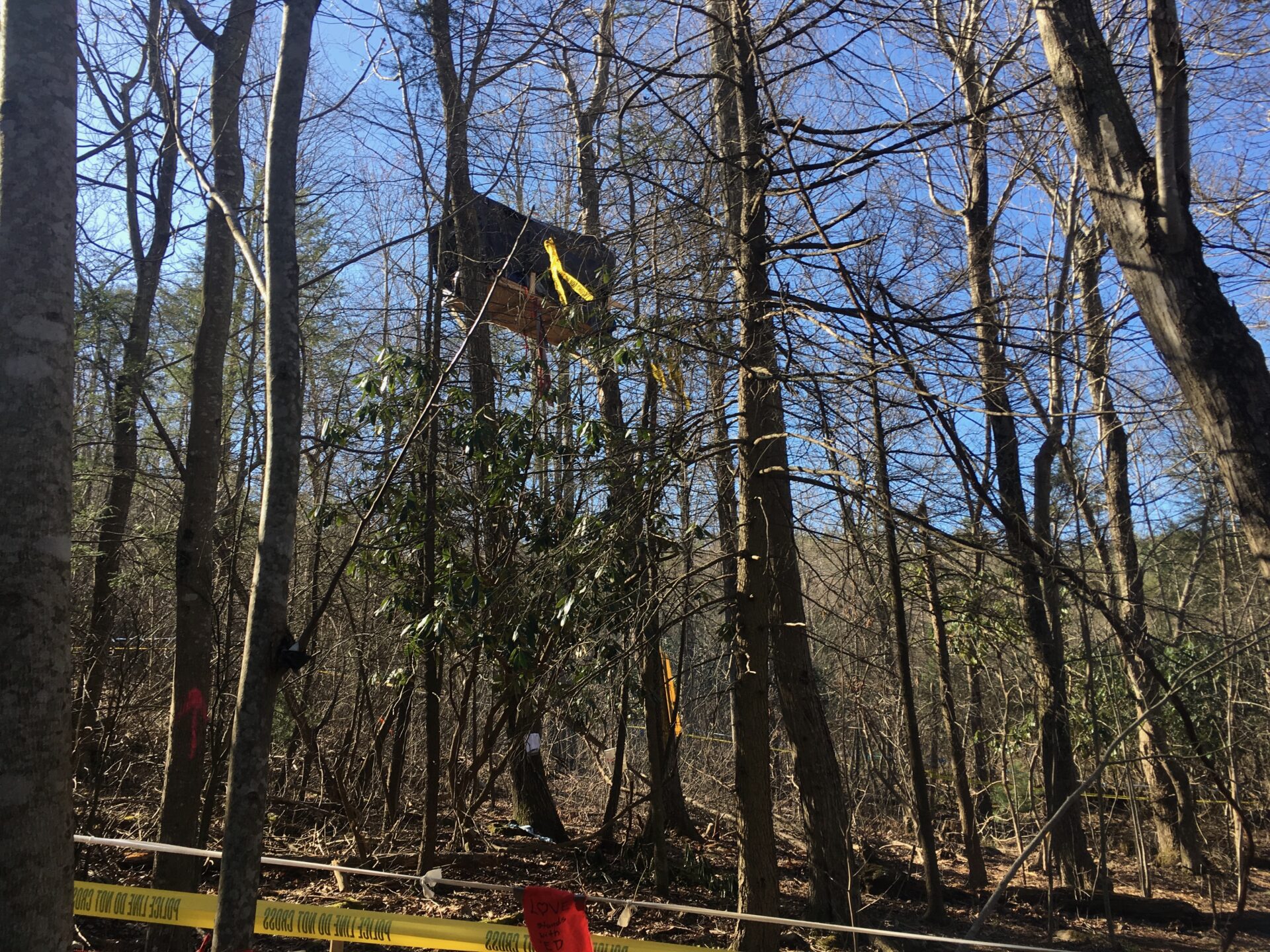Red Terry’s property in Bent Mountain, Virginia, is in the path of the Mountain Valley Pipeline. She says the place was beautiful, but she’s worried about the dangers of the pipeline not far from her home.
Plus, almost everybody has a favorite cup or coffee mug, but how far would you go to replace it? One woman would go pretty far.
And… we explore an effort in western Virginia to make old-time music more available to Black musicians.
You’ll hear these stories and more this week, Inside Appalachia.
In This Episode:
Back On Bent Mountain With Red And Coles Terry
Photo Credit: Mason Adams/West Virginia Public Broadcasting
People have been fighting the Mountain Valley Pipeline since it was first announced. The project runs through West Virginia and Virginia, connecting natural gas terminals with a 303-mile pipeline stretching across some of Appalachia’s most rugged terrain. Almost immediately after construction began, protestors tried to block it by setting up platforms in trees along the route and living in them.
In 2018, host Mason Adams interviewed activist and tree sitter Theresa “Red” Terry, as she protested against the pipeline on her own property.
Six years later, with the pipeline nearly finished, Adams went back to Bent Mountain to talk with Red Terry and her husband Coles to hear what’s happened since Red came down from her tree sit.
The Last Unicorn (Mug)
Photo Credit: Wendy Welch/West Virginia Public Broadcasting
Folkways stories come in all shapes and sizes. And sometimes, they bring a little magic – like a story about how losing a very special mug can lead to finding something greater.
Folkways Reporter Wendy Welch brings us this tale of a potter who lost her mojo and a woman who helped her get it back.
Earl White’s Old-Time Music
Photo Credit: Nicole Musgrave/West Virginia Public Broadcasting
Appalachian old-time music brings together traditions from man cultures: African and African American, Native American and Scots-Irish. And yet, the contributions of Black and Indigenous musicians have often been erased or overlooked. In Floyd County, Virginia, one man has spent years working to make old-time music more available to Black musicians.
Folkways Reporter Nicole Musgrave has this story.
——
Our theme music is by Matt Jackfert. Other music this week was provided by Jeff Ellis, June Carter Cash, Joe Dobbs and the 1937 Flood, Earl White, Amethyst Kiah, Tyler Childers and Dinosaur Burps.
Bill Lynch is our producer. Zander Aloi is our associate producer. Our executive producer is Eric Douglas. Kelley Libby is our editor. Our audio mixer is Patrick Stephens.
You can send us an email: InsideAppalachia@wvpublic.org.
You can find us on Instagram, Threads and Twitter @InAppalachia. Or here on Facebook.
Sign-up for the Inside Appalachia Newsletter!
Inside Appalachia is a production of West Virginia Public Broadcasting.
